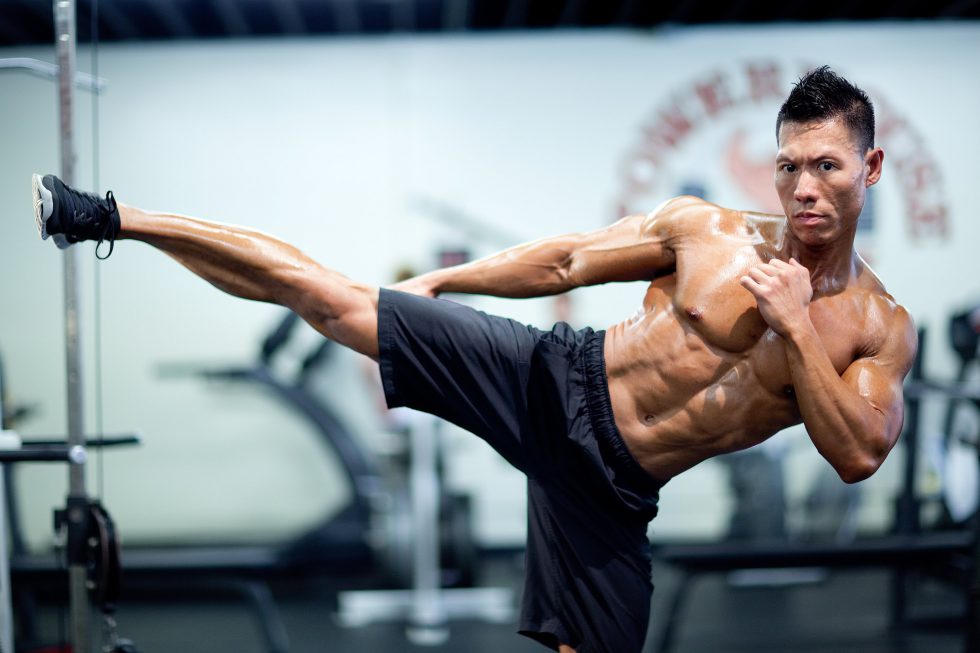
Дэвид – боец и спортсмен, обладающий невероятной работоспособностью, а также сын легендарного Боло Йенга; грозного китайского Халка, сыгравшего Боло в «Выходе Дракона» и Чонг Ли в «Кровавом Спорте»!
Уже в детстве Дэвид появился в «Раскрашенных Лицах», фильме 1988 года, рассказывающем историю Джеки Чана, Саммо Хунга и их братьев из пекинской оперы. Почти всю свою жизнь он посвятил целому ряду боевых искусств, таких как: каратэ, ушу, тхэквондо, кали, бокс, а также сфере фитнеса, что в конечном итоге позволило ему выиграть титул мистер Калифорния в 1998 году. Помимо работы с топовыми спортсменами из национальной футбольной лиги и легендой баскетбола Мэджиком Джонсоном, он также хорошо зарекомендовал себя как тренировочный партнёр лучших атлетов и культуристов мира.
Теперь он развивает свой талант, чтобы продемонстрировать свои навыки новыми, инновационными методами и перенести их вместе со своим мощным присутствием на большой экран... по его словам, это всего лишь вопрос времени.
Добрый, бескорыстный и скромный, но в то же время, невероятно сосредоточенный и целеустремлённый, Дэвид смог найти время, чтобы обсудить с нами многие вопросы; начиная от его ранней, базовой подготовки под вдохновляющим влиянием отца, и заканчивая посещениями съёмочных площадок и встречами с крупными игроками экшн-индустрии. Мы также используем его обширные знания и мудрость в области физической культуры; той деятельности, которой он, по его собственному признанию, посвящает себя до 3 раз в день, 7 дней в неделю! Если кто и обладает необходимой осведомлённостью по таким вопросам, как: мысленный настрой, мотивация, физическое развитие и питание, так это Дэвид. Мы надеемся, что вы почерпнёте для себя некоторые идеи и советы, и сможете использовать их в дальнейшем, дабы укрепить свою собственную решимость, ум и тело для достижения конструктивных целей, которые вы себе наметили. Ну а теперь давайте поприветствуем Дэвида Йенга!
Привет, Дэвид. Мы очень рады возможности связаться с тобой!
Дэвид Йенг: Привет, Радж. Я тоже очень рад, спасибо.
Итак, начнём по порядку: где и когда ты родился?
Дэвид Йенг: Я родился 3 июля 1974 года в Гонконге (в прошлом году отметил сорокалетие).
Каковы твои физические показатели: рост, вес?
Дэвид Йенг: Мой рост 172 см, вес 72кг.
Как ты вообще попал в боевые искусства, и сколько лет тебе было?
Дэвид Йенг: Я попал в боевые искусства, когда мне было 3 или 4 года. Мой отец обучил меня некоторым основам традиционных боевых искусств, включая тай-чи. На самом деле, именно он тогда разрабатывал график моих тренировок. Я думаю, было неизбежно, что он станет подталкивать меня в этом направлении, так и получилось! В возрасте 7 лет отец записал меня в различные школы, включая каратэ, тхэквондо, кикбоксинг, винь-чун, гимнастику и йогу, с этого момента я стал уже более серьёзно заниматься и тренировался до 14 лет. Я также изучал южный стиль ушу, и у меня есть чёрный пояс, первый дан по каратэ.
Так же как и твой отец, Боло, ты серьёзно посвятил себя бодибилдингу, верно?
Дэвид Йенг: Да. Вдобавок ко всему, я занимался бодибилдингом в течение 14 лет, с 14 до 28 лет. На протяжении моей 10-летней карьеры в бодибилдинге я был больше сосредоточен на этом типе тренировок. Понятно, что с дополнительной мышечной массой, было уже невозможно уделять столько же внимания боевым искусствам. Потом после ухода из бодибилдинга я занялся боксом.
Моё детство по большей части состояло из тренировок, я не так уж много времени проводил с друзьями или болтался без дела. Отец считал, что я должен посвятить себя спорту, поэтому у меня всегда был напряжённый график, папа готовил меня с ранних лет!
Твой отец, конечно же, был чемпионом по бодибилдингу и пауэрлифтингу. Каково это было для тебя, расти и при этом осознавать, что твой папа «Китайский Геркулес»?
Дэвид Йенг: Да, он действительно был чемпионом по бодибилдингу и пауэрлифтингу, и он очень вдохновил меня на то, чтобы быть похожим на него. Я имею в виду, посмотрите на него в 70-е годы, он был массивным и к тому же умел драться, и мне хотелось воплотить эти качества в себе. Я хотел доказать, что могу делать что-то важное, особенное и уникальное, поэтому старался воспользоваться всеми возможностями, которые мне предоставляли. Отец поощрял мои начинания, и я многим ему обязан. У меня есть младшие брат и сестра, но они не занимаются боевыми искусствами, у них свои интересы. И поскольку я старший брат, на мои плечи легла большая ответственность, так как согласно китайской традиции, отец всегда возлагает большие надежды на своего старшего сына, поэтому у меня всегда был стимул делать лучшее, на что я способен. Мой отец завершил карьеру, он ведь начинал ещё в 70-е, так что сейчас он уже не так активен. Но он много путешествует, появляясь в качестве гостя на различных мероприятиях в Гонконге. Он сильно убавил в весе, но он всё ещё очень силён для своего возраста, он в отличной форме, и что самое главное, здоров.
Какие слова или поступки твоего отца относительно важности фокусировки внимания на дисциплине, самоконтроле и тренировках, произвели на тебя наибольшее впечатление?
Дэвид Йенг: Я думаю, его поступки имели больший вес, чем слова, и, как его сын, я хотел сделать всё возможное для того, чтобы он мог мною гордиться. В настоящий момент, я хочу выложить все свои способности на стол, поскольку я чувствую, что теперь мне есть, что предложить. Суть в том, что ты не видишь результатов этих усилий в самом начале, ты начинаешь видеть их позже, после 20-30 лет упорной работы над собой.
Был ли кто-то ещё в мире боевых искусств, кто вдохновил тебя на тренировки?
Дэвид Йенг: Да, одним из них был, мастер стиля винь-чун, Вонг Шун Люн, который был учеником Ип Мана, он начал тренироваться где-то за два года до Брюса Ли. Поэтому, когда Брюс Ли поступил на обучение к Ип Ману, мастер Вонг помогал ему с тренировками.
Оглядываясь назад, наибольшую известность твоему отцу Боло принесла совместная с Брюсом Ли роль в «Выходе Дракона». Какие впечатления или воспоминания остались у него от работы с такой иконой боевых искусств, он делился ими с тобой?
Дэвид Йенг: Он постоянно говорил о Брюсе, сколько себя помню. Например, о том, что он был первопроходцем и новатором, и думал не только о себе. Да, он нередко проводил время с Брюсом за чашкой кофе. Самое важное, что я смог почерпнуть для себя из всего этого - уровень самоотдачи Брюса до самых последних дней его жизни - это напоминает мне о том, как быть успешным, оставаясь сосредоточенным на том, что ты делаешь. Брюс Ли вдохновляет меня оставаться сильным в моменты испытаний и жизненных трудностей, ведь наша жизнь состоит не только из ярких, солнечных дней.
Боло также выступил в качестве злодея в нескольких фильмах с Жаном-Клодом Ван Даммом. Все помнят его роль каноничного, агрессивного корейского бойца тяжеловеса Чонг Ли в «Кровавом Спорте» и его появление в «Двойном Ударе». Есть ли какие-то истории о тех волнующих временах работы с ЖКВД и вообще в фильмах 80-х и 90-х, которыми ты мог бы с нами поделиться?
Дэвид Йенг: Да, я хорошо их помню. На момент съёмок «Кровавого Спорта» мне было лет 12, я видел, как они снимали эти фильмы, поскольку находился на съёмочной площадке. Я впервые встретил ЖКВД, когда они снимали сцену кумитэ, папа отвёл меня в студию, и я смог увидеть их тренировку. Это был замечательный опыт, и после окончания съёмок Жан-Клод пригласил всю нашу семью на обед. Так я смог узнать его лучше. Большую часть времени он говорил о кино, от него так и веяло энергией и энтузиазмом. В то время я был новичком в бодибилдинге, и помню, как наблюдал за его тренировкой, пока он разговаривал с отцом (в его комнате были брусья и гантели). Его телосложение произвело на меня сильное впечатление, и это только подстегнуло меня в желании как можно скорее добиться отличной физической формы. Так что, его тренировки стали для меня примером, да и вообще Жан-Клод Ван Дамм отличный парень!
Твоей первой заметной работой в кино, стал фильм «Раскрашенные Лица», рассказывающий историю Джеки Чана, Саммо Хунга и некоторых других ребят в годы их обучения в пекинской опере. Как ты вообще получил эту роль?
Дэвид Йенг: В то время мне было лет 11-12, это был мой первый фильм, отец отвёл меня на прослушивание на студию Shaw Brothers в Гонконге. В те дни я много путешествовал с отцом (он таскал меня за собой повсюду!) и смог лучше ознакомиться с процессом съёмок, так что это не было для меня слишком сложно. Правда, мне досталась не главная роль (я был под номером 8), но я играл во многих детских сценах, прыгал там вместе с другими детьми! В общей сложности это заняло год, включая 6 месяцев подготовки и 5-6 месяцев съёмок. Я не ожидал, что это займет так много времени (и иногда ради съёмок мне даже приходилось пропускать занятия в школе!), но это было интересно, я много узнал об актёрском мастерстве и подготовке к съёмкам. Фильм оказался успешным, он получил приз за лучшую режиссуру и другие награды в Гонконге. Я встретил много замечательных людей, со многими из них я до сих пор общаюсь и благодаря этому стал лучше разбираться в кинопроизводстве. Мне тогда не удалось встретиться с Джеки Чаном, но я встретил Саммо Хунга, которого я называл «Дядя Хунг». Я, кстати, вырос с сыновьями Саммо, Тимми и Джимми, мы вместе ходили в школу, играли и болтались везде. Теперь они работают в индустрии развлечений, как и их отец.
Ты также хорошо известен в мире бодибилдинга. Как ты вообще увлёкся этим видом спорта, и в каком возрасте ты начал тренироваться с весами?
Дэвид Йенг: Я выиграл много местных шоу, и у меня были все шансы стать национальным призёром. Всё шло очень хорошо, но из-за травмы нижней части спины и колена (переусердствовал с подъёмом тяжёлого веса) я так и не стал профессионалом. Мне довелось работать с некоторыми представителями элиты бодибилдинга, в том числе с Флексом Уилером, с которым мы вместе тренировались 7 лет. Теперь мы как братья, хотя вначале наше общение было немного затруднительным, поскольку я не очень хорошо говорил по-английски. Когда он увидел, насколько я предан своему делу, и каких впечатляющих результатов я добился на соревнованиях, он решил тренироваться со мной.
Ты завоевал титул мистер Калифорния в 1998 году, верно?
Дэвид Йенг: Да, верно, я выиграл титул мистер Калифорния в 1998 и таким образом смог привлечь к себе внимание публики, это было очень крупное шоу, которое помогло мне добиться известности. Я также участвовал на соревнованиях в США в 2001 и 2003 годах; лучший результат был в 2001 году, когда я занял 6-е место. Я стремился постоянно совершенствоваться на всех фронтах и также донести своё послание людям, суть его заключалась в следующем: вы можете трансформировать своё тело, если вы полны решимости сделать это. Не нужно говорить «я не могу» или «наверное», или «я постараюсь». Просто скажите «да», или «нет», не говорите об этом, просто делайте. Только тогда в этом будет смысл!
С какими весами ты тогда работал?
Дэвид Йенг: Ну, в 23 года при весе 84 кг я мог выполнять приседания с весом 184 кг по 20 повторений (с полной амплитудой, касаясь ягодицами пяток), у меня очень сильные ноги. Я делал жим ногами с весом 544 кг. Однажды я сделал жим ногами с весом 362-408 кг в режиме нон-стоп, это был дроп-сет, состоящий из 91-92 повторений, со мной в зале в этот момент было 4-5 человек, так что они могут это подтвердить, потом я несколько дней с трудом ходил после этого! Вообще, мне очень повезло, так как у меня была возможность лично повстречаться со многими замечательными людьми из мира бодибилдинга, настоящими легендами вроде Шона Рэя, Ронни Коулмена, Арнольда Шварценеггера и много кого ещё. Но я не претендую на то, чтобы ставить себя в один ряд с этими людьми, главное я сам знаю, кто я есть.
Ты сейчас упомянул, что хотел бы найти себя в мире кинопроизводства. Расскажи о своём опыте в этой области. Какие фильмы или роли уже имеются в твоём багаже?
Дэвид Йенг: Я снимаюсь в фильме с Сонни Чибой «Kizuna» (или «The Bond» на английском), сопродюсером фильма выступил Gaku Space (который недавно сыграл Гоки в сериале “Уличный Боец: Кулак Убийцы”), он также играет одну из ролей, а режиссёром стал Рюджи Ямакита из Японии. Мой отец хорошо знал Сонни в середине 70-х, позже он даже снял фильм «Душа Чибы» вместе с ним в Таиланде.
Кто тебя больше всего восхищает в фильмах с боевыми искусствами?
Дэвид Йенг: Брюс Ли, мой отец, и по разным причинам: Джеки Чан, Джет Ли, Саммо Хунг (он так быстро двигается), Гордон Лью - настоящий боец и Лау Кар Люн; один из лучших бойцов и великий хореограф, который в своё время изучал много южных стилей боевых искусств. А его отца тренировал мастер, обучавшийся южным стилям ушу под руководством Вонг Фэй Хуна. Тони Джаа, очень гибкий и ориентированный на каскадёрские трюки, невероятно пластичный, хотел бы увидеть его в чём-то новом (может, в блокбастере!), но, определённо, он делает нечто особенное. Ещё, пожалуй, отмечу Донни Йена – настоящий ветеран, который начинал ещё с первых фильмов Юэня Ву Пина. Я думаю, были и другие актёры, такие как Сталлоне и Стивен Сигал, вдохновившие меня тренироваться и формировать моё телосложение особым образом.
Назови несколько лучших фильмов о кунг-фу и вообще о боевых искусствах, по твоему мнению.
Дэвид Йенг: «Пьяный Мастер», «Храм Шаолиня», «Кулак Ярости», «Путь Дракона», «Выход Дракона», «Змея в тени Орла», «Проект А», «Кровавый Спорт», «S.P.L: Звёзды Судьбы», «Игра Смерти» и «Разборки в стиле Кунг-фу». Кстати, Брюс Леунг, сыгравший одного из злодеев, участвовавших в финальной схватке со Стивеном Чоу, дрался с моим отцом раньше - он отличный боец, очень яростный!
С какими актёрами жанра экшн и фильмов с боевыми искусствами ты больше всего хотел бы поработать в будущем?
Дэвид Йенг: Хотелось бы поработать с Тони Джаа, Донни Йеном, Саммо Хунгом, Джейсоном Стэйтемом и Дуэйном Джонсоном. Я хотел бы сделать что-нибудь новое, чего ещё не делал никто.
Как выглядит твоя тренировка?
Дэвид Йенг: Я делаю много силовых тренировок, а также выполняю кардио на беговой дорожке два раза в день. Мои тренировки на выносливость, т.е. удержание статического положения на гимнастических кольцах примерно на 10, 15 секунд, сложнее, чем просто подъём веса, поскольку это заставляет мои мышцы по-настоящему напрягаться. Этот тип тренировок поддерживает меня в форме, ещё бой с тенью очень помогает.
Я являюсь тренером по фитнесу и персональным тренером: мне нравится помогать людям добиваться результатов, будь то снижение веса или обучение их бодибилдингу или фитнесу. Я тренирую как новичков, так и профессиональных бойцов, помогая им увеличить выносливость, скорость и силу; я тренирую многих ребят для соревнований, тренировал даже свою сестру для участия в конкурсе бикини, и она стала профессионалом. Кроме того, я тренировал немало знаменитостей, людей, которых я знал по футбольной команде UCLA, профессиональных футболистов из NFL, Шона Джонса из команды Packers Green Bay и баскетболиста Мэджика Джонсона в тренировке с весами раз или два в неделю. Мэджик - очень скромный парень, добрый, дружелюбный, очень лёгкий в общении, у него всегда было хорошее интуитивное понимание того, что я ему преподавал, и это несмотря на то, что у него очень плотный график путешествий! Он - один из самых успешных баскетболистов и настоящий любимец публики, который охотно даёт автографы всем желающим. Тренерская работа в свою очередь помогает мне в достижении моих собственных целей касательно съёмок и обучения в области кинопроизводства и режиссуры.
Не мог бы ты рассказать нам подробнее о своих высокоинтенсивных тренировках?
Дэвид Йенг: Хорошо, давайте рассмотрим наиболее сложные упражнения. Например, на двойных кольцах или на турнике я могу выполнять подтягивания на одном или двух пальцах, я не использую все свои десять пальцев. Таким образом, я довожу своё тело до максимума, удерживая его в прямом положении в течение 15 секунд, это сложно и требует хорошего баланса. Впервые я был вдохновлён таким типом тренировок, увидев, как Брюс Ли делает свои фирменные отжимания на двух пальцах. После этого я решил начать тренировать свои пальцы по 6 часов в день. У меня ушло 3-4 месяца на то, чтобы научиться выполнять полноценные отжимания на пальцах (полностью разгибая руки в локтях), хотя поначалу я чувствовал онемение, затем я приноровился хвататься за перекладину только большими пальцами. Я стал практиковать это упражнение 7 дней в неделю, без перерывов, люди, которые занимаются лазанием, должны быть хороши в этом. Я почти повредил оба больших пальца, порвал некоторые мышцы, в итоге потребовалось несколько недель на восстановление. Но я твёрдо убежден, что чем интенсивнее вы тренируетесь, тем больше вы привыкаете к этому, тело постепенно адаптируется к стрессу, и вы становитесь сильнее.
Но ты ведь ещё практикуешь боевые искусства? Твои тренировки состоят по большей части из боевых искусств и работы с весами?
Дэвид Йенг: Да, но в последние 6 месяцев я немного сбавил обороты, так как я работал тренером и мне также выпала возможность поработать над фильмами, например, я изучал сценарии разных независимых фильмов, таких как «The Bond». Мне также нравится тренироваться с палкой Кали, и я люблю экспериментировать с ней, например, постепенно увеличивая скорость её вращения. Мне нравится подходить к процессу творчески и делать что-то особенное. Помимо этого я участвую и в других кинопроектах, в которых присутствуют боевые сцены. В ближайшее время эти фильмы будут демонстрироваться на кинофестивалях в этом году или уже в следующем. В будущем хотелось бы поработать и над более крупными проектами.
Какие упражнения для наращивания мышечной массы наиболее эффективны? Что бы ты посоветовал?
Дэвид Йенг: Во-первых, я хочу прояснить одну вещь; тренировка с весами и силовая тренировка, это не одно и то же. Наиболее интенсивные упражнения, которые я выполняю, не зависят от внешних весов, а скорее задействуют мой собственный вес. Например, раньше я выполнял жим в наклоне с весом в 63,5 кг, по 4-5 повторений, но при этом не мог сделать больше 10 подтягиваний. Сегодня, однако, я знаю, что моя сила исходит не от весов, истинная сила находится внутри меня. Это совершенно другой уровень. Конечно, тренировка с отягощениями лишней не будет, но упражнения с собственным весом куда более эффективны.
И возвращаясь к работе с весами, какие были максимальные веса, с которыми тебе доводилось работать в базовых упражнениях, таких как: присед, жим лёжа и т. д.?
Дэвид Йенг: Я был не особенно силён в жиме лёжа, но в тренировках ног я мог хорошо конкурировать при моём относительно лёгком весе. Ноги у меня в приоритете, я люблю тренировать ноги! Несмотря на то, что сам я довольно лёгкий, мои физические показатели весьма неплохи. Я мог приседать с дополнительным весом в 184 кг, и в наклонном жиме работал с весом 63,5 кг, делая по 4-5 повторений.
Как насчёт тренировок на гибкость?
Дэвид Йенг: Я много времени уделяю растяжке, в целом я довольно гибкий. Раньше, когда я особенно налегал на этот тип тренировок, я мог делать шпагат между двумя стульями. Без проблем могу наносить высокие удары ногами, делать вертушки на 360 градусов и тому подобное, я довольно прыгучий. Правда, как-то раз я порвал мышцы на левой голени, так что теперь стараюсь быть осторожным.
Какое твоё самое любимое упражнение, и существует ли какой-то особый метод тренировок, который тебе нравится / реально действенный? / позволяет тебе максимально выкладываться?
Дэвид Йенг: Я много занимаюсь на турнике, это позволяет мне почувствовать силу моих пальцев и испытать свою выносливость - мне нравится висеть на перекладине и делать много различных упражнений. Длительное удержание, поднятие ног в висе (это очень хорошо для мышц кора), мне это очень нравится. Максимальное время, что мне удавалось выдержать, вися на двух пальцах каждой руки, составляет 1 минуту 45 секунд, то есть, это когда просто висишь, не раскачиваясь. Выполняя эти упражнения, я ощущаю дополнительный прилив ментальной силы, так что в итоге получаю от упражнений гораздо больше. Может, как-нибудь выступлю на Barstars expo в Лас-Вегасе!
Какая у тебя была самая серьёзная травма и как ты с ней справлялся?
Дэвид Йенг: Однажды я выполнял сальто, и кто-то ударил меня сзади как раз в момент прыжка, в итоге я неудачно приземлился, ударившись коленом об землю. Я не мог ходить почти неделю. Ещё у меня была травма спины из-за приседаний с дополнительным весом, у меня ушло 6-8 месяцев на восстановление, я был вынужден перейти на щадящий режим тренировок и делать различные “обходные” движения, чтобы не напрягать травмированные мышцы.
Что ты предпочитаешь делать для того, чтобы оправиться от особо напряжённого периода физической активности? И что бы ты посоветовал всем тем, кто ведёт особенно требовательный образ жизни в плане физической нагрузки?
Дэвид Йенг: Самое лучшее, это отдых, просто воздержитесь от любых упражнений! Само собой, это тяжело, ведь чем дольше ты отдыхаешь, тем слабее становишься. Я стараюсь не травмироваться, поэтому могу быть более последовательным. И обязательно проведите разминку, прежде чем приступать к полноценной тренировке!
Что, по-твоему, является ключом к энергии и силе?
Дэвид Йенг: Я думаю, секрет заключается в мысленном настрое и в том, насколько сильно вы хотите чего-то конкретного. Если вы можете представить себе то, чего вы хотите, будете жить и дышать этим, и настроитесь решительно, вы получите это в ближайшее время! Каждое утро я просыпаюсь в 5-6 утра, и говорю себе, что чувствую себя прекрасно и начинаю тренироваться, я знаю, что всё остальное придёт. Мысленно вы говорите себе о том, к чему вы стремитесь, ставите перед собой цель, уделяете этому время, планируете свой график, и добиваетесь всего, к чему вы стремились. Я ставлю перед собой цель и временные рамки, необходимые для её достижения, затем говорю себе, что результаты не заставят себя ждать, что это непременно произойдёт. Это психологическая тренировка, подходящая как для соревнований по бодибилдингу, так и по боевым искусствам. Как только вы определились со своими целями и сроками для достижения этих целей - всё, вы настроились! Вы должны быть очень терпеливы, это может занять время. И как только вы скажите себе, что не собираетесь сдаваться, вы достигнете своей цели, вы добьётесь успеха!
Какой диеты ты придерживаешься – туда непременно входят продукты с высоким содержанием белка? Сколько калорий ты обычно потребляешь?
Дэвид Йенг: Ничего экстраординарного, всё предельно просто и ясно; в мой рацион входят варёные яйца, жареная курица, не слишком много соли, а также потребление большого количества углеводов для топлива перед тренировками. Это очень простой тип ежедневного рациона. Опять же, самое главное - это ваша мысленная установка, иногда люди слишком грузят себя лишней информацией, начинают во всём сомневаться, затем тело улавливает эти сигналы мозга и начинает выглядеть соответствующе. Вам нужно пробовать разные продукты и запоминать, что лучше всего подходит для вас. Постарайтесь придерживаться того рациона, который вам подходит. Даже если и бывает так, что я ем больше положенной нормы, я всё равно слежу за тем, что именно я употребляю в пищу, это может быть, к примеру: жареная курица, лосось, салат, рис или овощи. На самом деле, я не так уж много ем, я потребляю всего где-то около 2000 калорий в день. Вообще, я считаю, самое важное в спорте, это отдых и не слишком много стресса. Просто старайтесь быть на позитиве: встали пораньше и бегом в зал тренироваться!
И какие именно продукты лучше всего подходят для тебя?
Дэвид Йенг: Если есть такая еда, по которой я изголодался и не ел её какое-то время, то я могу немного побаловать себя, и тогда мой организм реагирует очень быстро. Например, я ем курицу каждый день, и если я, допустим, ем её уже несколько недель подряд, и затем начинаю чувствовать, что очень хочу стейка, я специально жду какое-то время, пока не проведу более энергозатратную тренировку. Тогда моё тело становится очень чувствительным, от нехватки такой еды, и потом, когда я позволяю себе съесть стейк, мой организм отзывается незамедлительно. Или ещё такой пример: если я несколько месяцев не ел мороженое или сахар, я продолжаю сопротивляться этой жажде, и вот когда я собираюсь провести интенсивную тренировку, я увеличиваю потребление сахара, в основном, за счёт зерновых добавок (в которых содержится много сахара) и обезжиренного молока, и сплю потом как младенец. Это повышает уровень инсулина и на следующий день у вас будет гораздо больше энергии. Знаю, очень многие люди обеспокоены этим, но мой процент подкожного жира в организме фактически снижается, притом, что вес остаётся прежним. Вам также необходимо увеличить потребление клетчатки. В любых фруктах содержится сахар, конечно. Бананы, черника, клубника - то, что надо. Арбузы и ананасы тоже хороши, но слишком частое их употребление может способствовать удержанию воды в организме. Овощи, например, брокколи или спаржа, тоже хорошо подходят для стабилизации веса.
Какие продукты лучше всего подходят для набора мышечной массы? Что ты рекомендуешь?
Дэвид Йенг: Употребление в пищу продуктов с высоким содержанием белка, тяжёлая тренировка с регулярным увеличением веса, который вы поднимаете. Если будете каждодневно придерживаться такого распорядка, всё это, без сомнения, поможет вам прибавить в объёмах. Вначале я ел всё подряд, лишь бы нарастить мышечную массу, будь то курица, стейк, рис или картофель. Позже я стал более разборчив, исключив из своего рациона те продукты, которые не были особенно полезны или необходимы.
А добавки ты принимаешь? Что ты рекомендуешь?
Дэвид Йенг: Раньше я употреблял много креатина, протеиновых коктейлей, поливитаминов, калия, кальция, BCAA и DHEA. Я не пью много соков, поскольку они заставляют моё тело удерживать воду, хотя соки, конечно же, полезны, так как в них содержится много питательных веществ. Иногда по утрам я пью коктейль, смешанный с лимонным соком. Теперь я экспериментирую и просто смотрю, как моё тело реагирует на те или иные добавки.
А как ты относишься к тому, если, скажем, человек серьёзно занимается бодибилдингом, но при этом является вегетарианцем?
Дэвид Йенг: В целом, я думаю, мясоеды имеют тенденцию быть более сильными, однако самоотверженность и мысленный настрой сильнее всего. Еда сама по себе не обязательно является ключевым фактором. На самом деле всё зависит от человека. Например, я знаю олимпийских тяжелоатлетов, которые не принимали добавок и даже не ели много мяса. Яйца раз или два в неделю, были вообще чем-то особенным в их рационе, но как они стали такими сильными? Вам также необходимо учитывать генетику и то, как человек тренируется. На подготовке к Олимпиаде можно увидеть людей, которые тренируются по 10-12 часов в день, и при этом они не употребляют много добавок, но как-то же они становятся чемпионами мира! Но я всё-таки скажу, что определённо нужно больше белка, чтобы прибавить в размере и массе, потому что иначе… как вы станете больше?
Можешь ли ты рассказать о себе что-нибудь такое, что по-настоящему удивит и обескуражит людей? То, чего они от тебя точно не ожидали?
Дэвид Йенг: Я живу тренировками и работой, у меня нет каких-то особых увлечений. Даже в выходной день мне становится некомфортно, если я не занят чем-то. Я тренируюсь три раза в день, я очень энергичен - мне от многого пришлось отказаться, чтобы иметь возможность заниматься тем, что я люблю больше всего - то есть непосредственно тренировками и обучением.
Если бы ты мог стать супергероем, в кого бы ты перевоплотился? И какой суперсилой тебе больше всего хотелось бы обладать?
Дэвид Йенг: Когда я был ребёнком, мне нравился мультик про Хи-Мена - я смотрел на его телосложение, и хотел тренироваться, чтобы быть таким же, как он! Но если честно, я не большой любитель всех этих сказок с летающими супергероями и всем таким прочем... Особая сила, которую я хотел бы иметь - это сила влиять на то, чтобы помочь людям получить мой внутренний посыл, стимулировать их мыслить и понимать. Я считаю, очень важно делиться накопленным опытом и знаниями, которые затем перейдут следующему поколению. Важно оставить наследие после себя.
Как ты обычно расслабляешься? У тебя есть какие-нибудь увлечения?
Дэвид Йенг: Мне нравится отдыхать и слушать много очень мягкой, расслабляющей музыки, например, Yanni, особенно перед сном - слушаю пару песен, расслабляюсь полностью, и мгновенно отрубаюсь! Ещё люблю пройтись по пляжу, я ведь живу на Венис Бич, иногда просто читаю что-то в Интернете, какие-нибудь новости, или нахожу что-то интересное, листая видео на YouTube. Мне нравится просто смотреть что-нибудь и попутно узнавать для себя что-то новое.
Когда я тренируюсь, то слушаю транс или танцевальную музыку. Для меня музыка – это как лекарство: например, хэви-метал - очень сильная музыка, которая может заставить вас хорошенько встряхнуться. Я знаю некоторых культуристов, которые слушают медленный джем, это помогает им быстрее добиться хорошего пампа, при этом, не перегружая свою нервную систему. Это зависит от того, как они контролируют свой мозг, иногда они меняют музыку в зависимости от того, что они делают. Например, если это тренировка с отягощениями, то я предпочту что-нибудь очень сильное и мощное с большим количеством ударных. Музыка передаёт сигналы вашему мозгу и помогает лучше концентрироваться. Я знаю многих культуристов, которые подбирают себе музыку под определённый тип упражнений.
Можешь назвать свои любимые фильмы не о боевых искусствах?
Дэвид Йенг: Любимые фильмы не о боевых искусствах… я, пожалуй, назову: «Рокки», «Гладиатор», «Профессионал», «Гнев», «Круто сваренные» и ещё «Схватка» с Аль Пачино и Робертом Де Ниро. Помню, в детстве я смотрел много британских фильмов, которые показывали тогда в Гонконге, мне нравятся фильмы того периода.
Что ты больше всего любишь в жизни?
Дэвид Йенг: Я очень ценю жизнь и сам факт того, что я живу!
А что не любишь?
Дэвид Йенг: У меня нет привычки копить гнев внутри, обвиняя в своих неудачах людей или обстоятельства. Я уже убедился на личном опыте – что посеешь, то и пожнёшь. Так что я не вижу смысла тратить время на негатив, вместо этого лучше заниматься чем-то более продуктивным в жизни. Я думаю, мы все должны с оптимизмом смотреть в будущее!
Скажи, за что ты больше всего благодарен судьбе? Что наполняет тебя гордостью?
Дэвид Йенг: Я горжусь, что являюсь тем, кто я есть, горжусь, что я живу: на самом деле я безмерно благодарен за всё. Я горжусь тем, что 28 лет своей жизни посвятил тренировкам, и я очень благодарен судьбе за то, что мне представилась возможность приехать сюда в Штаты. Я узнал намного больше о жизни (и особенно о тренировках), живя здесь. В Гонконге было иначе: я просто платил людям за частные уроки и они тренировали меня, но там я не узнал столько всего, сколько узнал здесь; в США люди добры, терпеливы и не жалеют времени, чтобы объяснить как можно больше и поделиться своими знаниями со мной. Например, мои друзья по бодибилдингу многому меня научили, и впоследствии мне это здорово помогло. Теперь я тоже очень терпелив и предан своему делу. Я благодарен судьбе за то, что смог постичь навыки боевых искусств, за последние 6 лет обогатив свой арсенал ещё и боксом, и также обучился владению оружием ближнего боя.
Мне кажется, если бы я приехал в США раньше, то сейчас я знал бы ещё больше, но никогда не поздно учиться. Каждый день я говорю себе - сегодня я должен научиться хоть чему-то новому, неважно, чему именно. Среди моих учеников есть фармацевты, юристы, банкиры. И они постоянно общаются между собой, мы делимся знаниями друг с другом и в процессе общения с ними я узнаю для себя что-то новое. Так что, это одна из моих ежедневных целей - каждый день узнавать что-то новое... Знание - сила!
Скажи, каких высот ты хотел бы достичь в ближайшие 5 лет? Как далеко ты планируешь зайти лет эдак через 5? Неважно, в бодибилдинге, сфере фитнеса или кинопроизводстве?
Дэвид Йенг: Год назад я поставил себе цель сделать что-то реальное. И сейчас я полон решимости пробиться в киноиндустрию. Моя цель - сниматься в фильмах, так что я продвигаюсь в этом направлении шаг за шагом: в прошлом году я предпринял первые попытки, и с тех пор всё больше и больше людей предлагают мне участвовать в различных кинопроектах. Они знают, что я серьёзно отношусь к своему делу, и я верю, с теми идеями, что есть у меня в голове, я смогу привнести в кино нечто уникальное. Я хотел бы продемонстрировать свои возможности, показать нечто особенное.
Пожалуйста, опиши нам один день из жизни Дэвида Йенга?
Дэвид Йенг: Я очень занятой человек! Последние 8-9 лет я взял за правило вставать около 5 утра. У меня очень плотный график, и помимо этого, у меня есть ученики, которых нужно тренировать. Каждое утро я выпиваю кофе… нет, не потому что оно помогает мне проснуться (я лично считаю это самовнушением), а просто потому, что мне нравится его вкус! С 8-ми до 10-ти утра я иду в спортзал, делаю кардио и тренируюсь. Затем я встречаюсь со своими учениками и тренирую уже их. Около полудня до вечера я занимаюсь обучением, чтением и т.д. Я веду активный образ жизни и редко возвращаюсь домой раньше 11-ти вечера.
Есть ли мысль, которой ты хотел бы поделиться прямо сейчас с читателями Kung-fu Kingdom и со своими фанатами по всему миру?
Дэвид Йенг: Я хотел бы поблагодарить тебя, Радж и команду Kung-fu Kingdom за то, что пригласили меня провести отличное интервью. Мне нравится логотип инь-ян на главной странице вашего сайта, он напоминает мне о мудрости: «за всё плохое и хорошее в этом мире, ответственны мы сами».
Я хотел бы сказать, что бы ни случилось, никогда не сдавайтесь, не бойтесь потерпеть неудачу. Я сам столько раз терпел неудачи, но один человек всегда помогал мне вернуться к реальности, и для меня таким человеком стал мой отец. Что касается тренировок, если вы не видите результатов сегодня, это ещё не значит, что вы не увидите их завтра, просто наберитесь терпения. Представляйте, визуализируйте мысленно то, чего вы хотите. Вы должны чётко представлять то, что вы визуализируете в своём сознании, затем зафиксируйте эту картинку и определитесь для себя: насколько упорно вы будете работать, ради достижения своей цели? Насколько вы голодны? Что касается меня, если я что-то решил, для меня уже нет пути назад. И помните, если будете топтаться на месте, кто-нибудь другой вас обгонит. Найдите подходящих людей для работы, и затем работайте с ними. Позитивный настрой также поможет вам улучшить шансы на успех!
Какие цитаты из воинской мудрости по-настоящему закалили твой характер, и помогли тебе стать тем, кем ты являешься сегодня?
Дэвид Йенг: Мне очень нравятся высказывания Брюса Ли, так как они реально мне помогают:
«Одного лишь желания недостаточно, ты должен действовать».
«Не молись о лёгкой жизни, молись о силе, чтобы справиться с тяжёлой».
«Знаний недостаточно, мы должны применять их на практике».
«Не существует определённых временных рамок для достижения цели. Наберись терпения".
Я считаю очень важным доказывать приверженность своему делу, прежде всего, самому себе. Ведь по большому счёту слова ничего не значат, так что меньше говорите и больше показывайте свои реальные результаты.
Если люди захотят узнать больше о тебе, где им лучше всего искать информацию?
Дэвид Йенг: Они могут посетить мою официальную страницу на Facebook: Facebook.com/DAVIDYEUNGBOLO, зайти на мой YouTube-канал: BOLO JR и также посетить мой аккаунт в Instagram: 2bolojr.
Спасибо, Дэвид за твоё любезное участие в этом интервью. Мы желаем тебе всего наилучшего в твоих грядущих проектах, пожалуйста, дай нам знать, как только они увидят свет. Оставайся на связи, мы с нетерпением ждём – будем рады увидеть больше твоих работ, и, надеюсь, фильмов тоже!
Дэвид Йенг: Спасибо! Непременно. И я вам тоже очень признателен.
Официальный источник: kungfukingdom.com
Дата публикации: 3 февраля 2015
Перевод: Black Dragon



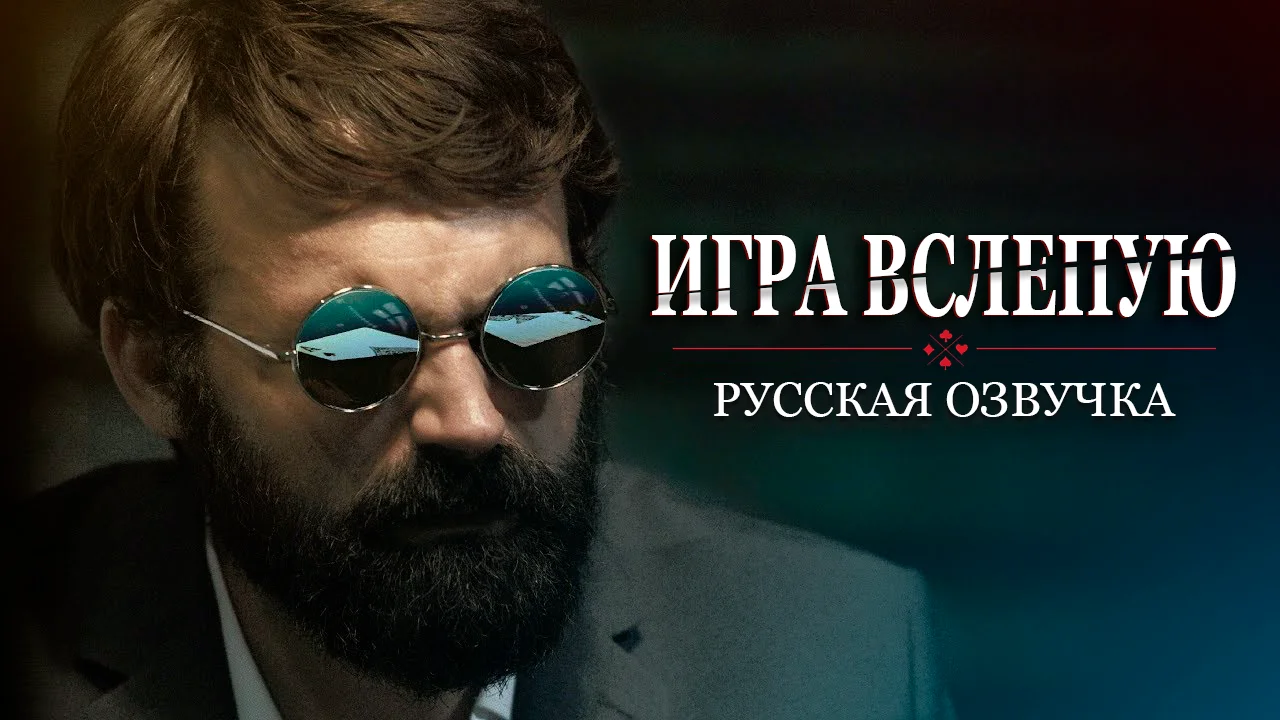
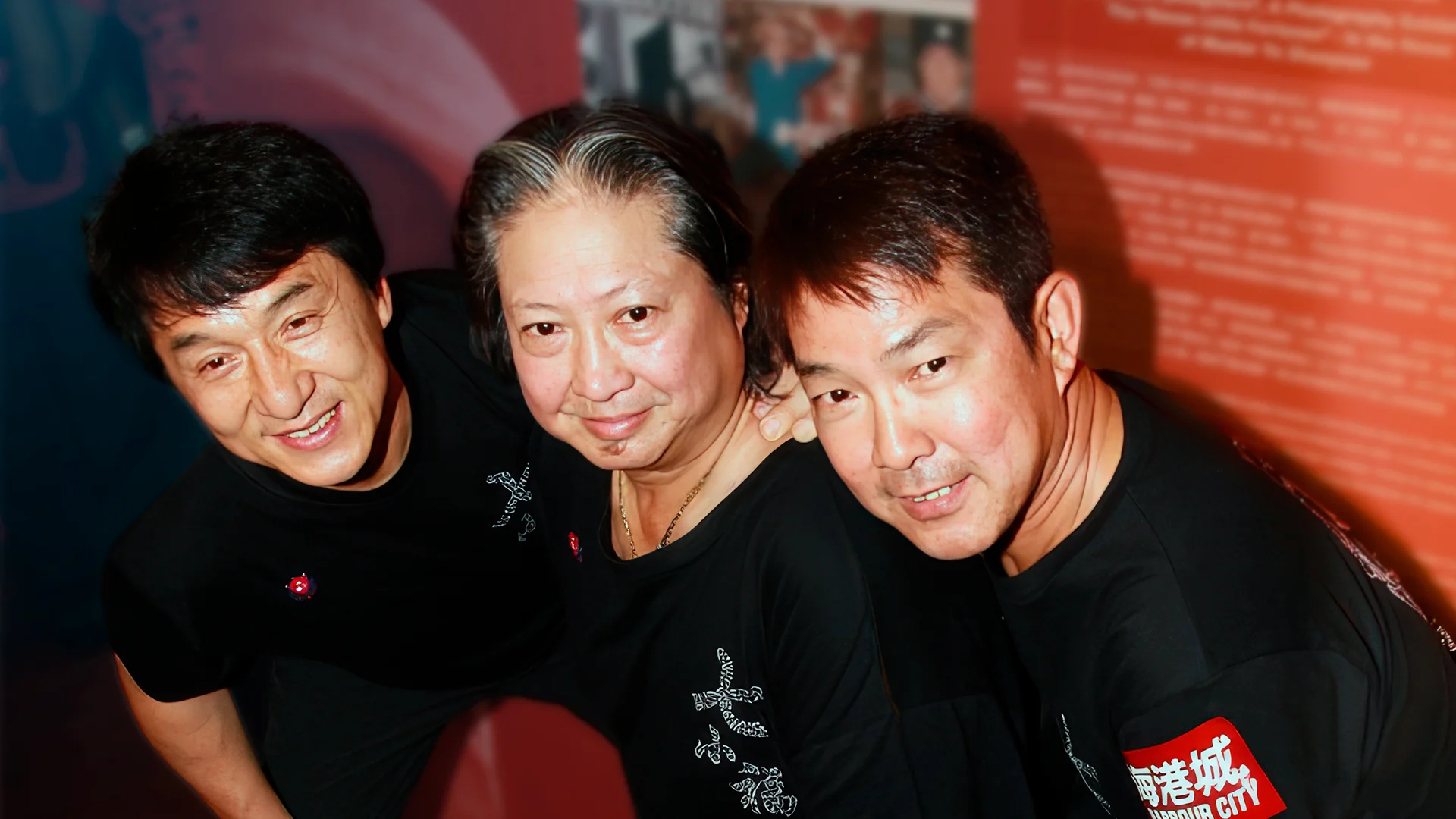
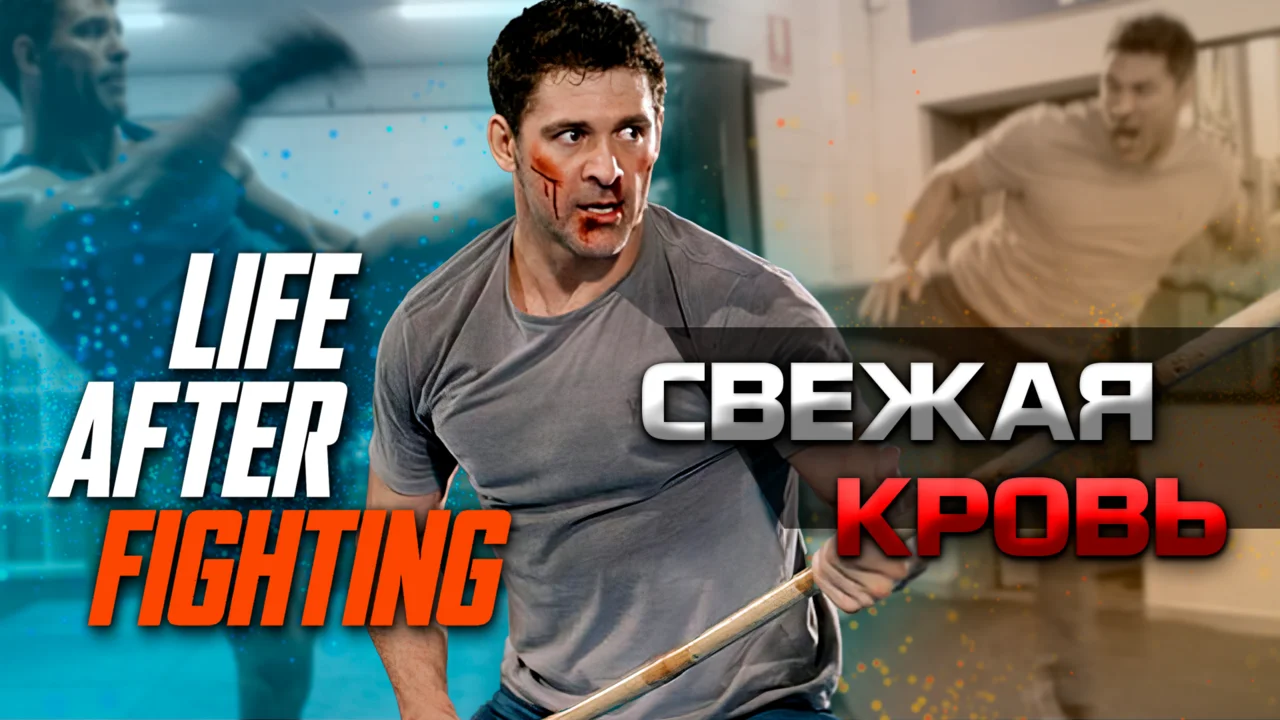
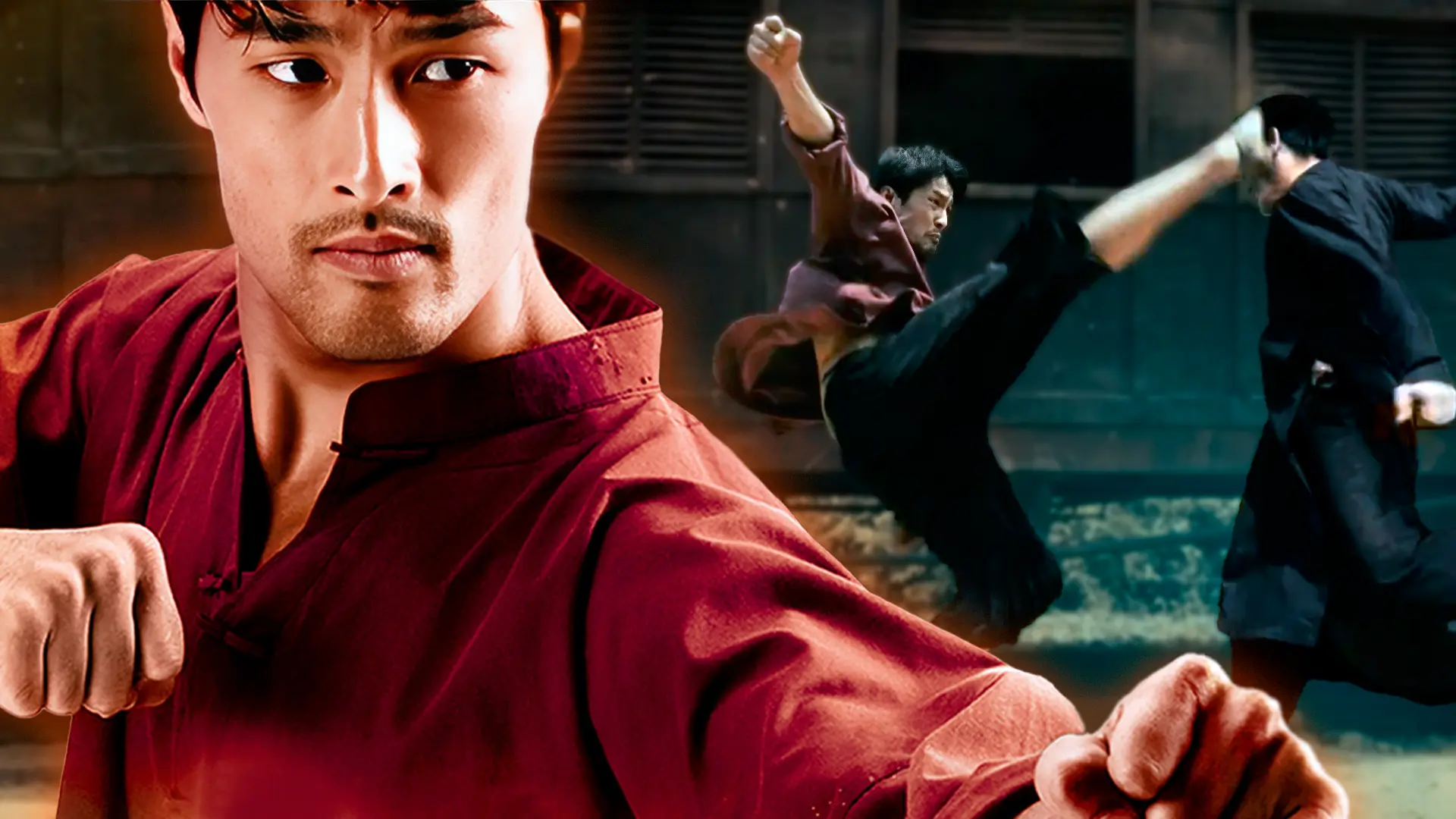
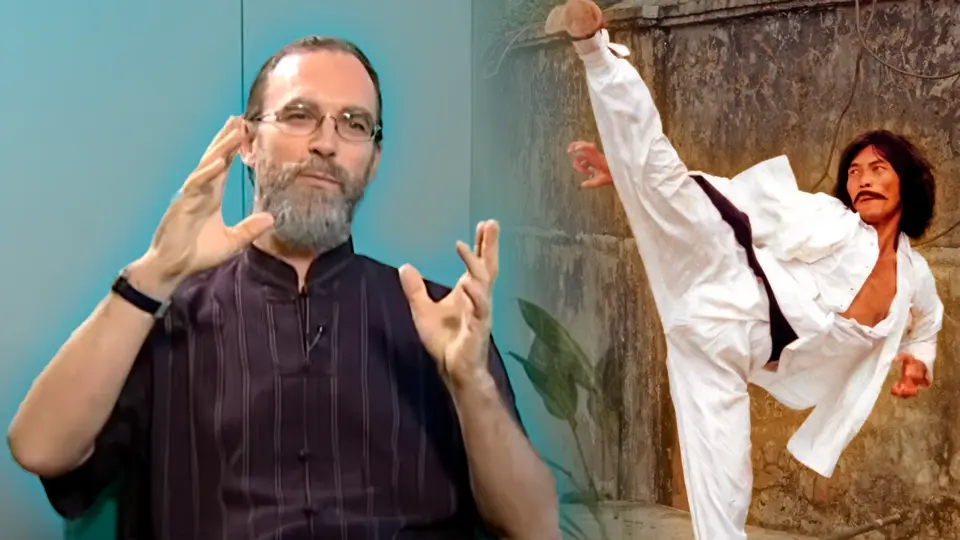
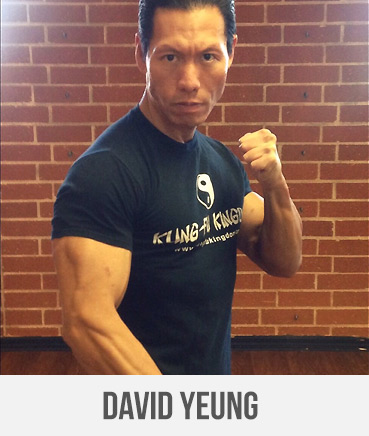
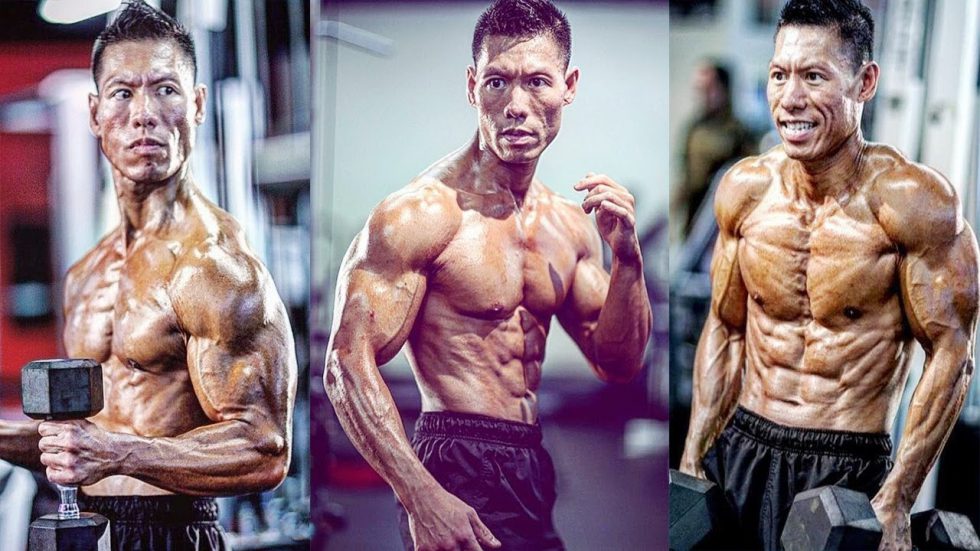
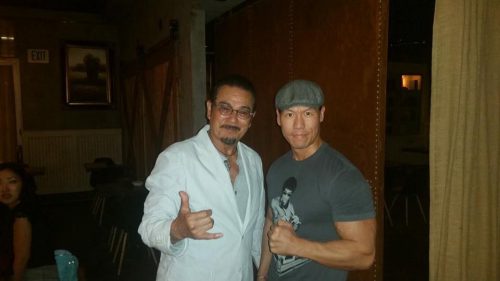
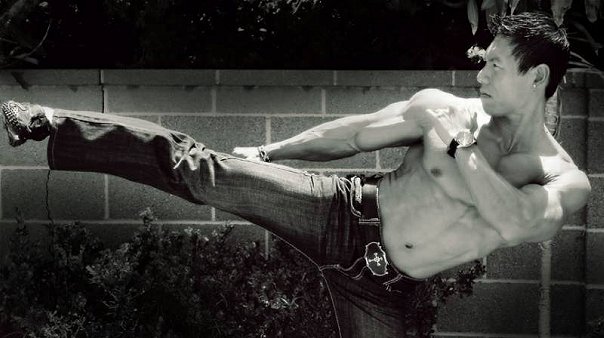
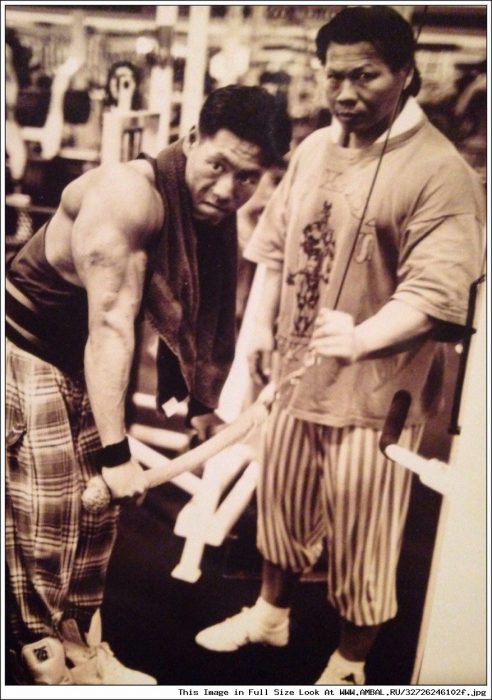
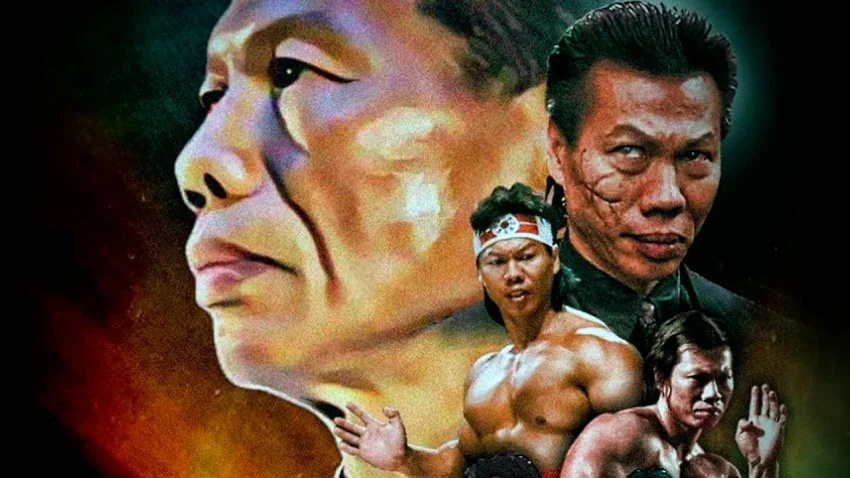
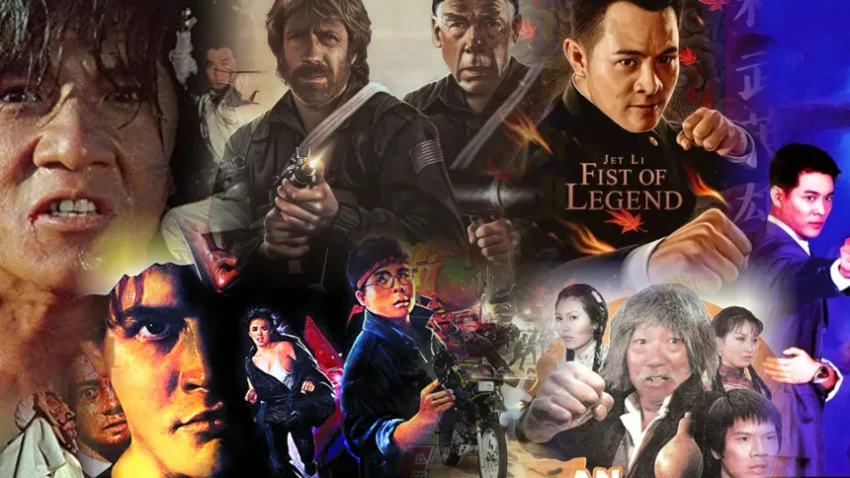
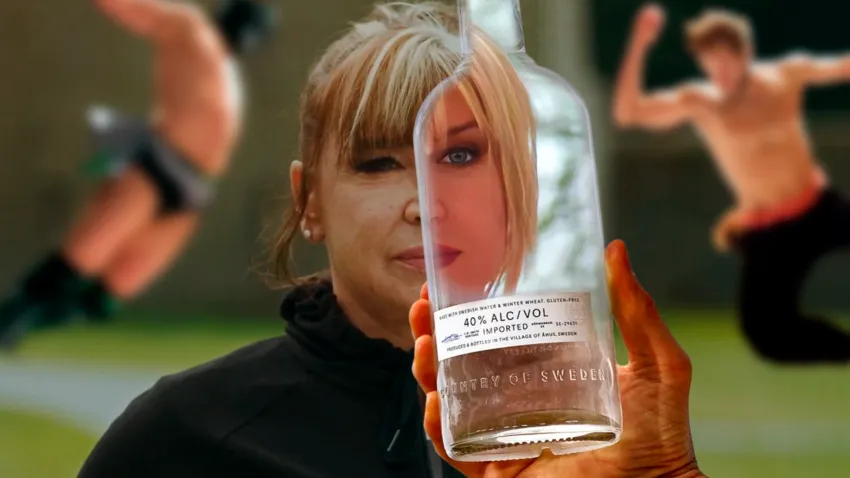

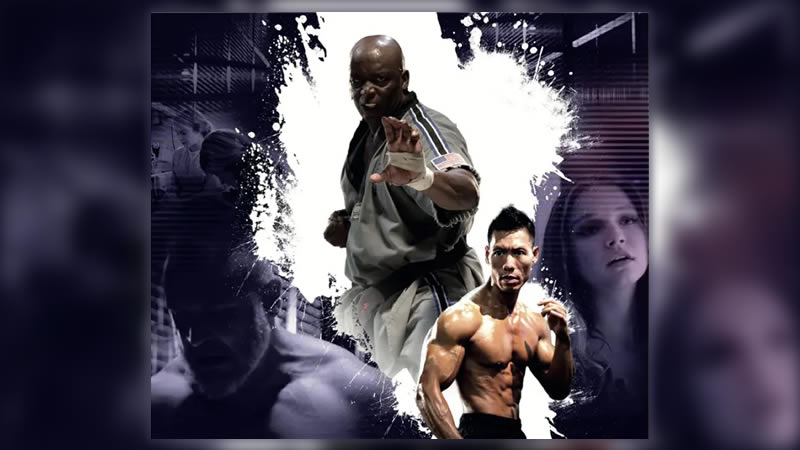
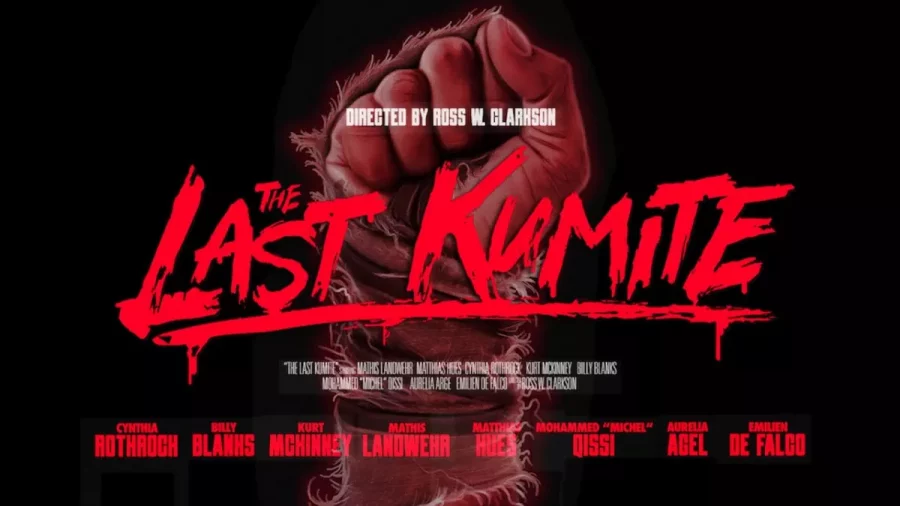
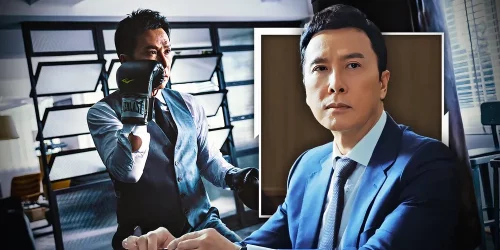
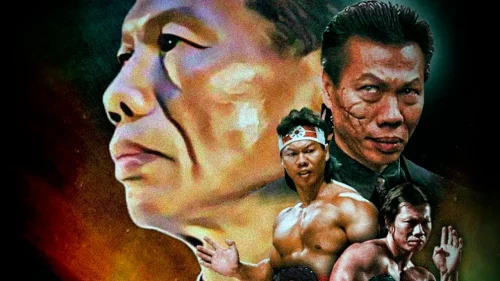
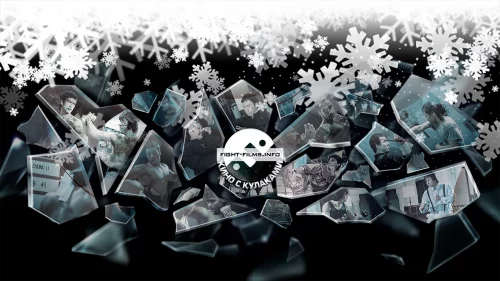
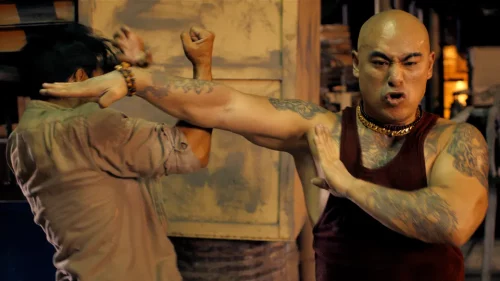
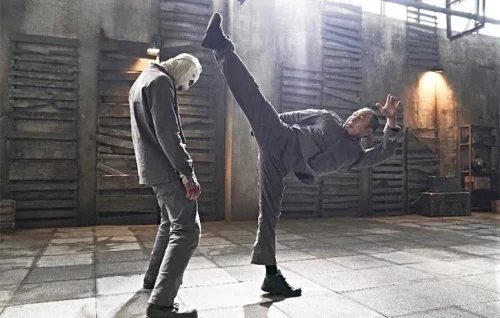
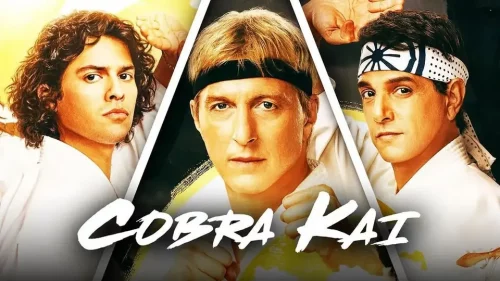

Отличное интервью. Спасибо большое. Мотивирует.